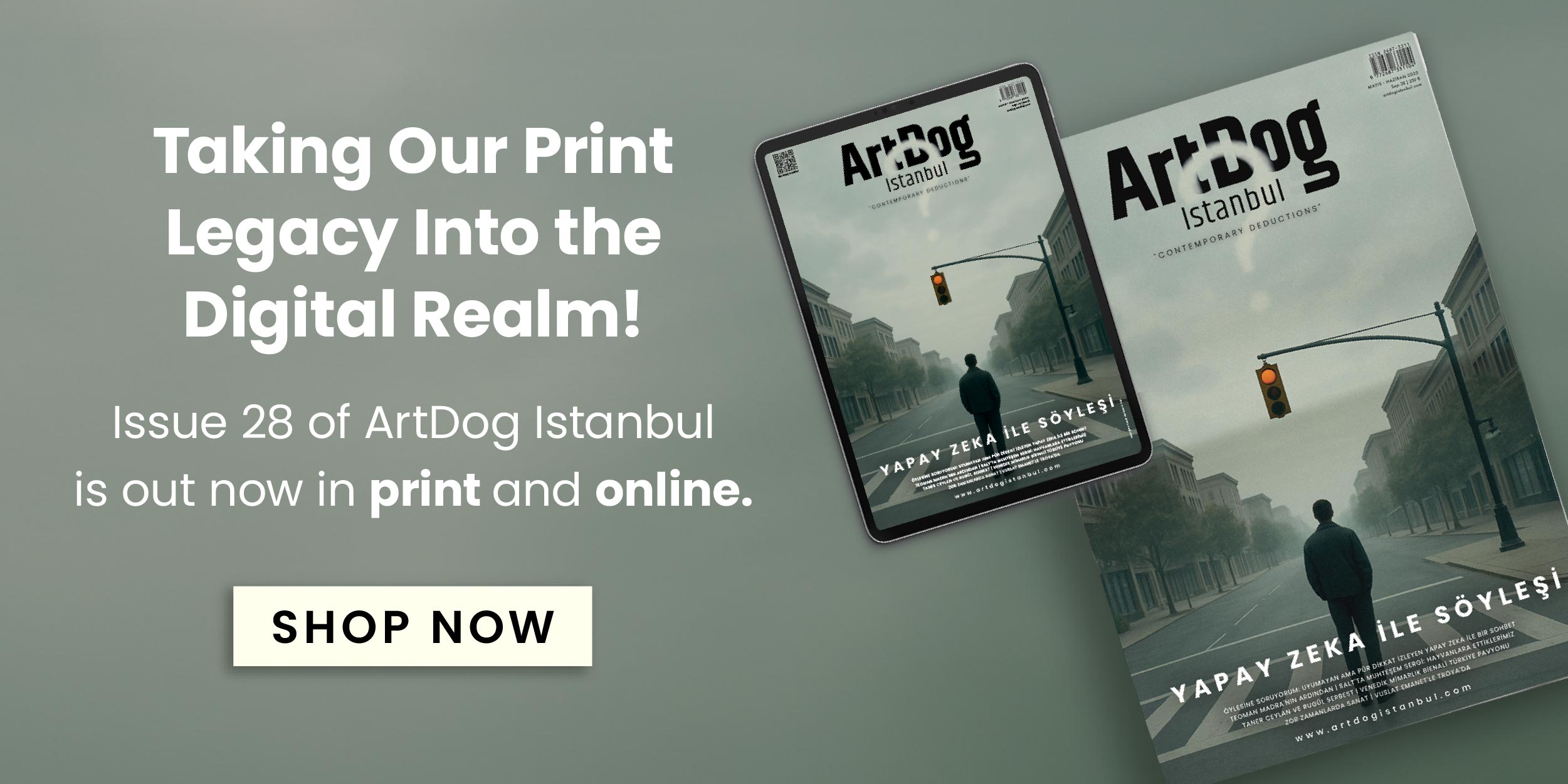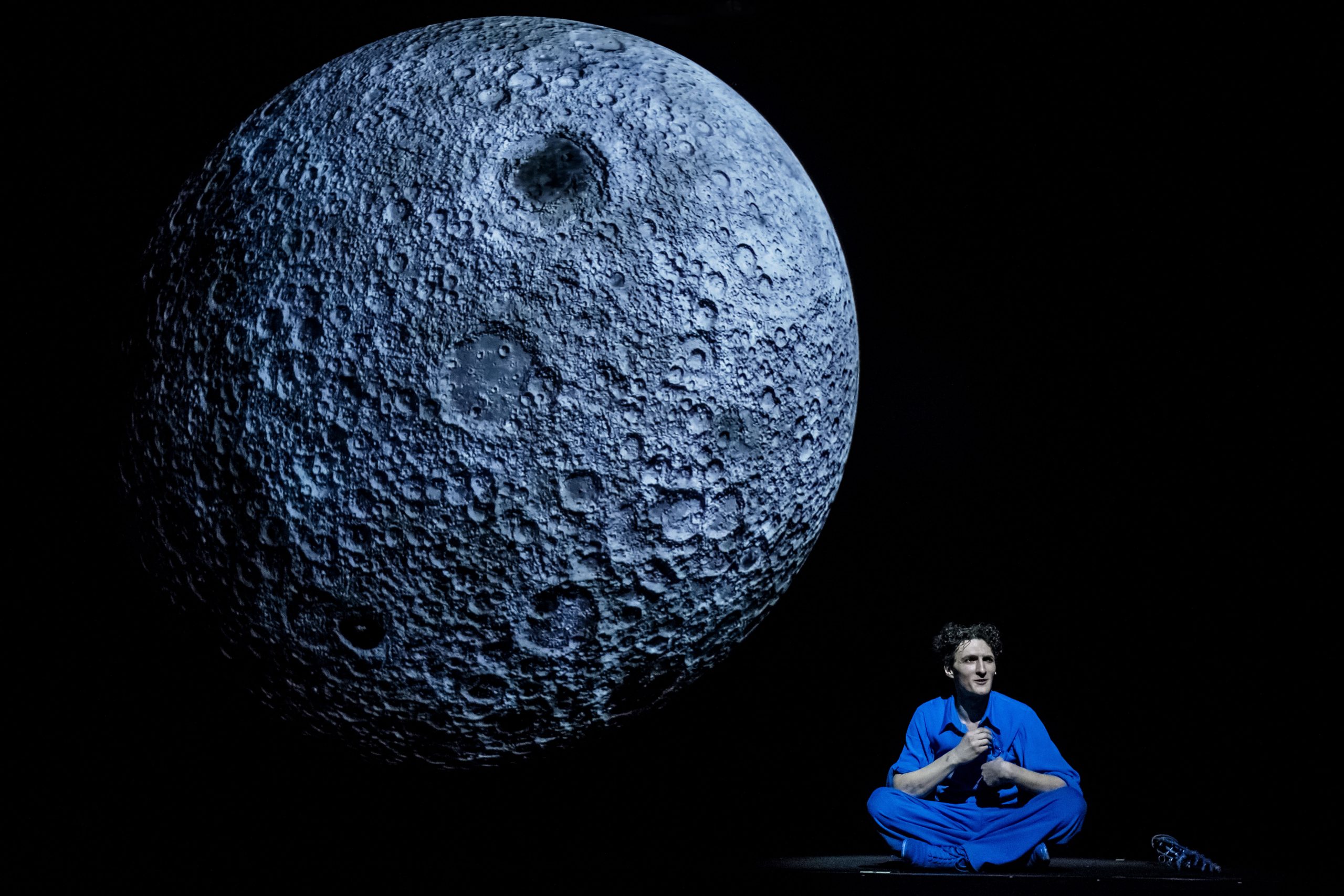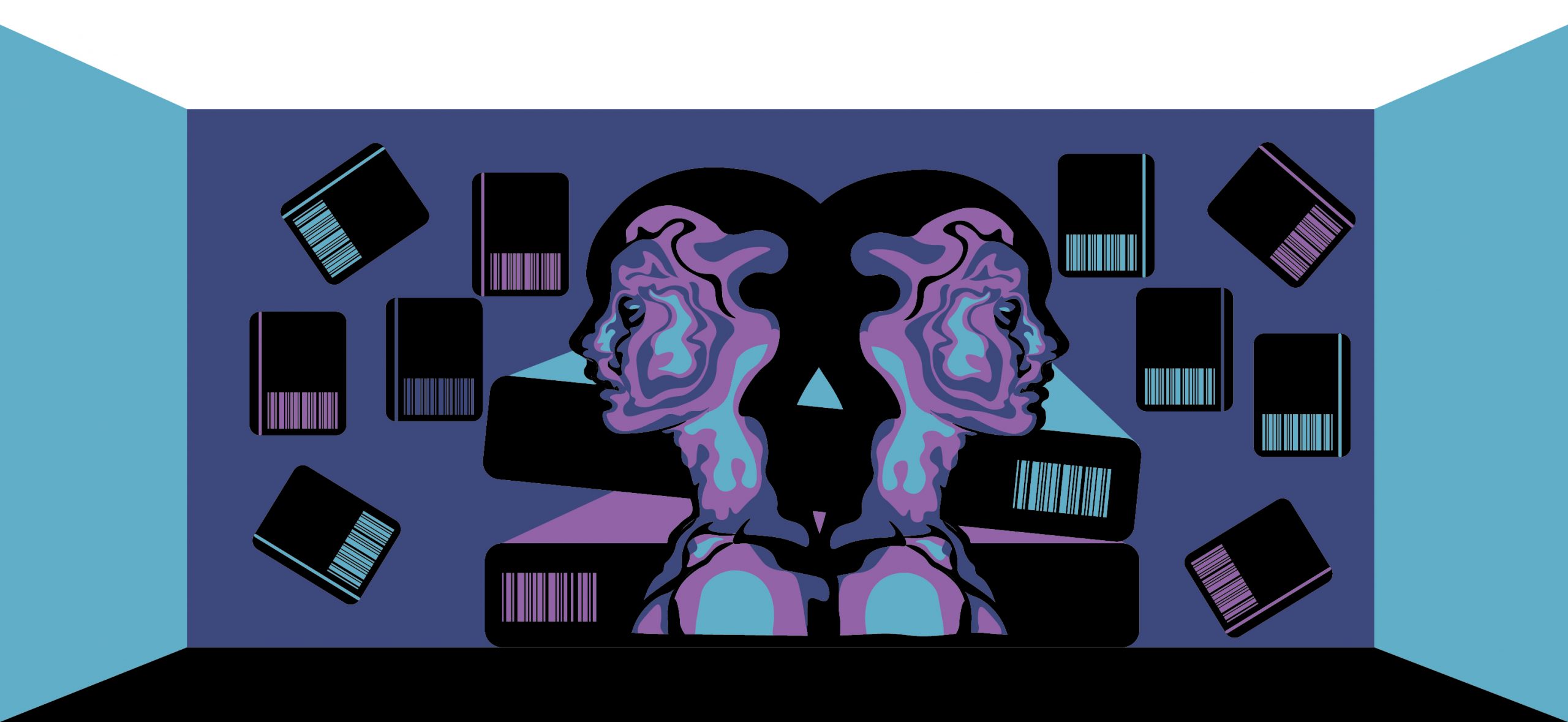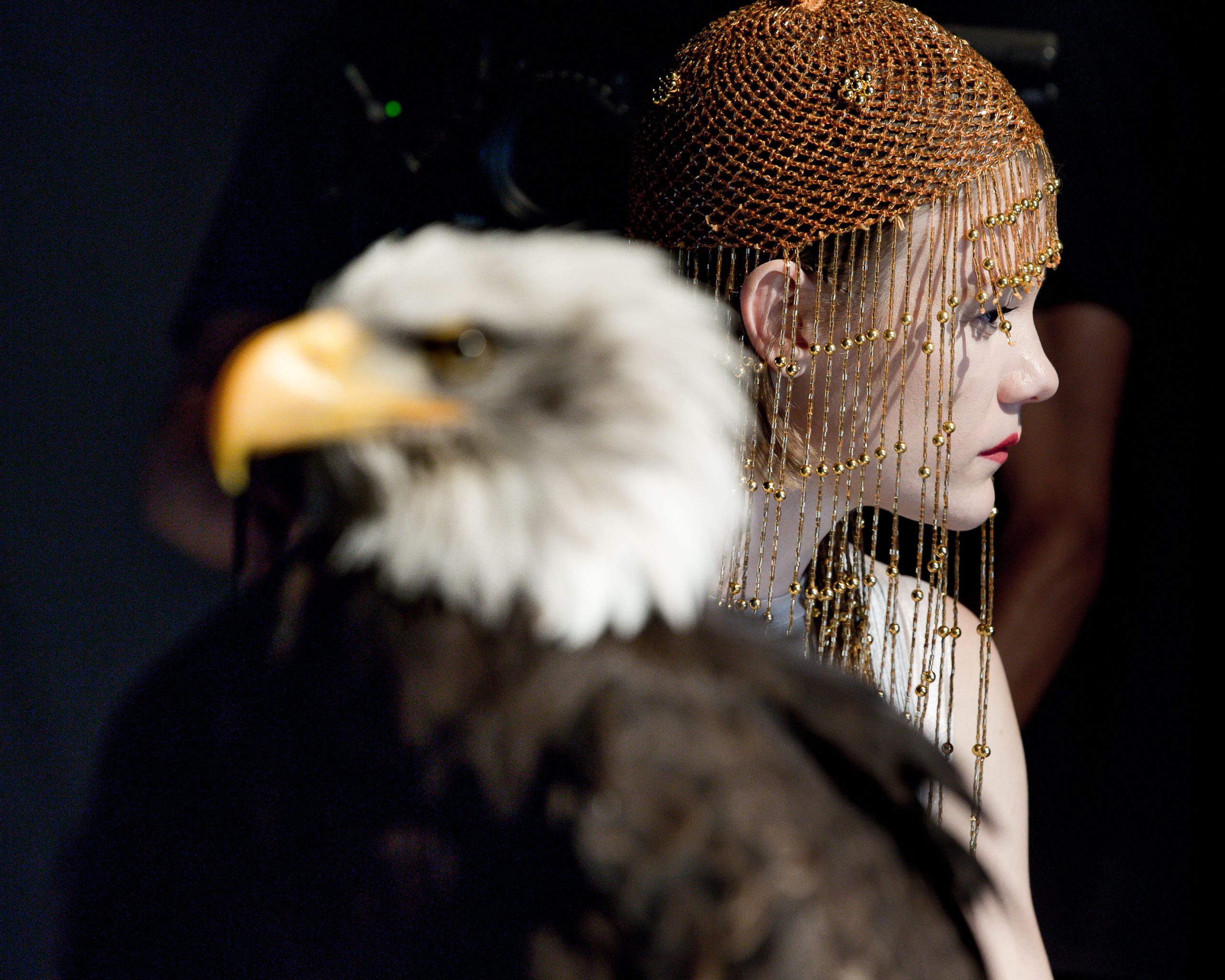Welcome to Istanbul. The Circus is an enthusiastically awaited performance. Let’s start with getting to know you. How and why did you decide to become a theatre director?
I should say that I come from a family that belonged to the theatre world. My grandmother, my grandfather and my uncle were theatre directors. In fact, for a long time I tried to stay away from this career path. I did not want to be a director or have anything to do with theatre. While still very young, I tried different professions. But in the end, something dragged me into the theatre. I decided to become an actor, because a career in acting seemed much more attractive to me. I entered the Theatre Academy and was even invited to film shootings. But the kind of theatre we were taught in the Theatre Academy, the academic theatre, did not appeal to me. I went to Dresden to join the underground Derevo company. It was an independent theatre in which the concepts of “a director” or “an actor” were somewhat blurred. We were trained to be everything, from stagehands, scriptwriters, managers, make-up artists to actors and directors. At some point, I realized that I had accumulated a lot of experience and that I was ready. To be honest, I don’t even know if that was a real decision. For me it was rather a need than a decision. I created my own theatre group The Drystone, where I began to realize my crazy ideas, while continuing to be an actor and a director at the same time. It was not a theatre group as such; it was rather some kind of “actionism”. While being engaged in the most wonderful actionism that gave me a lot of pleasure, I met with the director Nikolai Dreiden. He invited me to work with him as a co-director at a Russian repertory theatre. By that time, I already knew that the Russian repertoire theatre was a big institution that existed for a long time and that it is able to provide a considerable economic and logistical support. I thought to myself it is a huge “factory”, so it needs me. That is why; I am still making productions in Russian repertoire theatres.
You are a very productive director. How would you describe the kind of theatre you make and your directing style?
I want to think that I am making a fairly diverse theatre. One way or another, it relies on the human body as the main means of expression. Body and voice as fundamental things. I am interested in exploring human nature in general, the emotional, physical, archaic aspect of it, rather than the intellectual side. Still it is hard for me to define my style, it all depends on the specific production. For example, my other production, The Text, was made entirely as a film, instead of a play and for this production; I used a screenplay of the contemporary Russian writer Dmitry Glukhovsky.
How did you come up with the idea of adapting the film The Circus to stage? What is important for you about that film? What were some challenges of adapting a 1930’s film to stage?
The main paradox of the film is that it is a very sunny comedy produced in 1937, during the most severe repression in the history of our country. This was Stalin’s favorite film and that was for me an important emotional and semantic point. I was born in that period and I was a member of the Young Pioneer Union. I think that for Russian people, The Circus represents the cultural code of an ideal Soviet world, which unfortunately still looks attractive to quite a number of people in this country who would actually want to bring it back.
You call the style of The Circus “retro-futurism”. Can you elaborate on that? The action takes place in the future as our grandparents once imagined it. The future they had dreamt of never happened.
Does your production of The Circus have any political subtext underneath all the drama?
Yes, of course. After all, it is about the confrontation between the Russians, the Soviets and the Americans, which is incredibly relevant today. We see it happening before our eyes. In the production, we tried to revisit this idea in some way.
A press review talks about The Circus re-imagining the Soviet Union as a utopian paradise. Do you think it was a utopian paradise?
Yes, absolutely.
It can be said that you belong to a generation of post-Soviet era theatre practitioners. What can you say about the dynamics of theatre making in Russia during your time? Can you compare it to the Soviet era in terms of difficulties, challenges and conveniences?
This is a complex question. I never attributed myself to post-Soviet directors, but I suppose it wouldn’t be wrong to define me as such. I was born in the Soviet Union and I work in the new Russia. During the Soviet Union, I was still a child and so it is difficult for me to adequately judge how people lived and worked at that time. But, I think there is certainly a similarity and the more we live now, the more noticeable it becomes.
Going back to The Circus, can you tell us about the development of the work and the rehearsals?
Even before the rehearsal period, our set and costume designer Masha Tregubova, our video artist Ilya Starilov and I decided what the stage would look like and we made a detailed storyboard. We had a fairly clear idea of what we wanted. When we started doing the rehearsals, we followed the storyboard. But, when you start working with actors and come in contact with the material world of objects, you have to consider all the available possibilities and that always changes something in the original plan. The work in process was a very happy time for us, the rehearsals were wonderful, filled with love for each other and for what we were doing together, the lead actress Ingeborga Dapkunaite and all the guys.
You say you make “physical theatre”. What does that entail? Is it difficult to find actors who are used to that kind of work in Russia or does it come naturally with their training?
This is something that actors develop during training. Every day we start with a warm-up, most often I work with a choreographer and the training takes up a large part of our work. In fact, any actor is capable of this. I do not see it as a big problem, but of course, drama actors may have a hard time with this genre.
How did you cast The Circus? How do you work with performers?
As I said, we had a storyboard and a fairly clear idea of how the actors should look like. I did the casting and in fact, I selected the actors who fit the specific characters.
You mix and match different genres of performing arts in The Circus, such as the circus, dance, theatre and musical. What do you like about combining these genres?
I mix these genres in different amounts for each production. It depends mainly on the material. I think that theatre is very diverse just like the world. I like to use all the available methods of embodiment of the material, and in the amounts suitable for that specific material. I love when people sing, because when a person sings, he reveals his nature fully. When a person moves, the same thing happens. The combination of movement, music and singing on the primitive level, reveals the nature of an actor and this is a positive thing. Doing so ends up touching the spectator, bridging the communication between the actor and the spectator. In this sense, I am not a very intellectual director; I am less interested in concepts and more interested in human nature.
You are a very productive director. How do you juggle all this work? Is there a “method to this madness”?
There is no special way. I really love what I do, that is all. I don’t feel like I’m struggling with something. I do what I love and so it’s easy.
What is a typical day for you like? Can you take us through a working day in the life of Maxim Didenko?
I rehearse and do the warm-up myself or sometimes I ask the choreographer to do it. I rehearse all day and then go to meetings or film editing. I would not say that my day is special in one way or another.
Are there any performers or directors that you’re particularly influenced by? Please also name specific performances, plays, films that influenced you and your style if any.
I would say I was quite influenced by the Derevo Theatre and the production of La Divina Commedia. Actually, after this production, I decided that I want to engage in that kind of theatre, I left all my previous work experience behind, shaved off my hair and started doing physical theatre. Then, when I saw the AXE Engineering Theatre, it made a tremendous impression on me and I began to work with them as well. Another powerful impression that made a turning point in my life was Romeo Castellucci’s Inferno. It was probably then that I began to think about the theatre in general, in a different way, what it can be like. I love Kirill Serebrennikov’s productions and I always try to see them in Russia, they truly inspire me.
What role does music play in your productions and specifically in The Circus?
In fact, in all of my productions music is the core. The skeleton of a play is always music. In this sense, all my performances are musical.
What are some of your future plans or projects?
I am shooting a web series now. In two weeks I will have the opening night of my new production based on Vladimir Sorokin’s novel The Norm, which I am producing with the composer Alexei Retinsky, it is almost like an opera. There are a lot of musical pieces; chorales, solo arias, and an orchestra. I’m doing a promenade performance in Moscow with augmented reality Escaping Atalanta based on the alchemical treatise of the 17th century.







